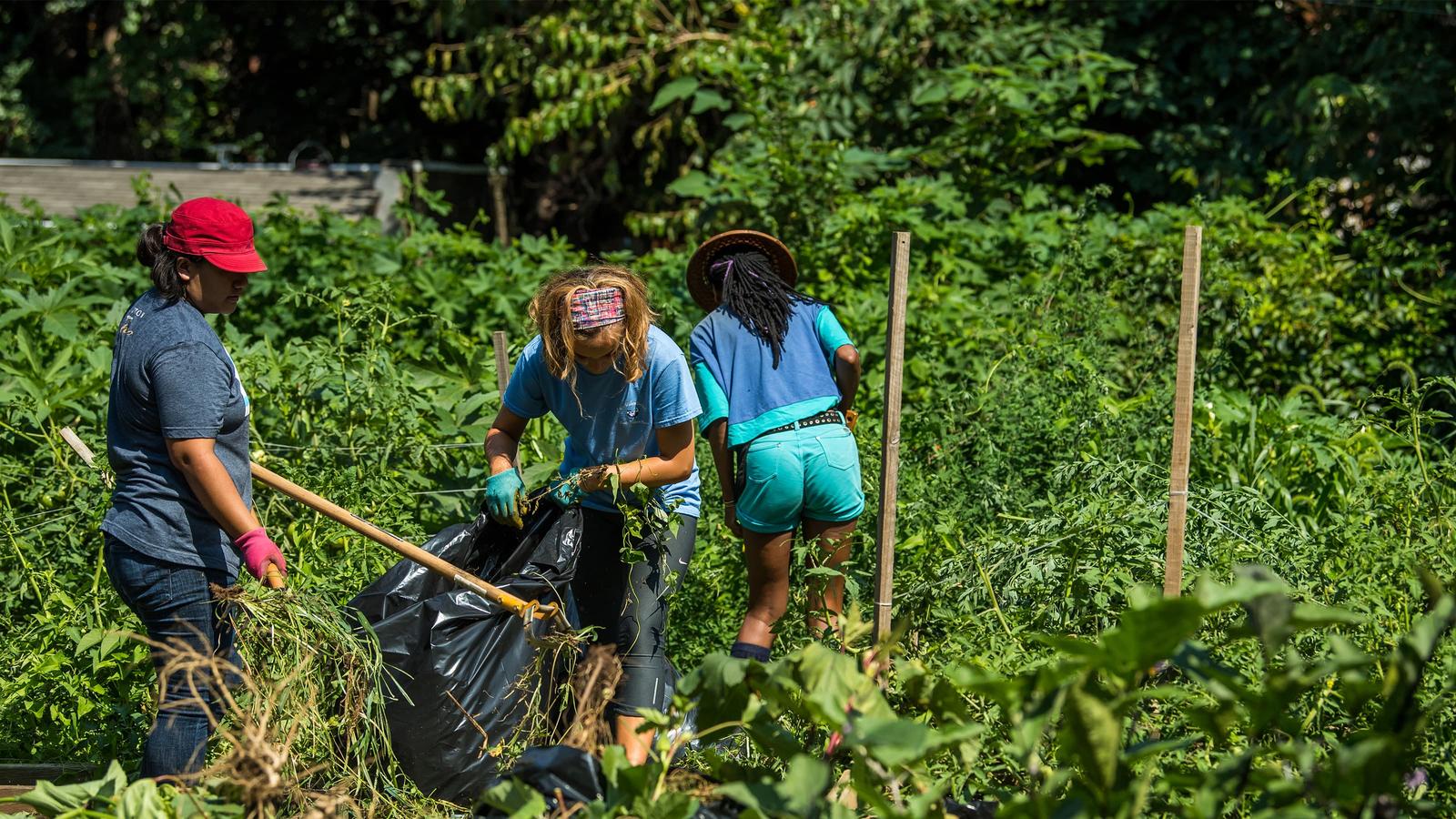Saint Joseph’s Receives 2020 Carnegie Foundation Community Engagement Classification
The designation recognizes the University’s efforts to partner and form relationships with communities locally and globally.
 Students work in a community garden as part of the Philadelphia Service Immersion Program, an early move-in program that introduces incoming freshman to the city and SJU's Jesuit values.
Students work in a community garden as part of the Philadelphia Service Immersion Program, an early move-in program that introduces incoming freshman to the city and SJU's Jesuit values.
Saint Joseph’s is being recognized for its efforts to actively engage with communities large and small through teaching, research, partnerships and service.
The University has earned the 2020 Carnegie Community Engagement Classification by the Carnegie Foundation for the Advancement of Teaching . After receiving the designation for the first time in 2010, SJU is among 119 institutions to receive this classification this year, joining 240 others who did so in 2015.
The classification is the leading framework for institutionalization of community engagement in U.S. higher education. In affirming the University’s classification once again, the foundation noted "excellent alignment among campus mission, culture, leadership, resources and practices that support dynamic and noteworthy community engagement."
“From the classroom to research and co-curricular activities, our students, faculty and staff partner with communities around the corner and across the globe to form lasting, mutually beneficial relationships,” says Cheryl A. McConnell , Ph.D., provost and vice president for academic affairs. “These partnerships strengthen our core values, address critical societal issues and contribute to the public good.”
Since earning the classification a decade ago, the University has made progress in developing policies, practices and outreach which foster reciprocal community engagement efforts. Among the highlights of these efforts are:
- Community-Engaged Scholarship is now a primary indicator for tenure and promotion for faculty.
- Intentional growth in centers and institutes — health-related research and scholarship in the Institute of Clinical Bioethics, the enrollment of more than 600 students in the Faith-Justice Institute 's service-learning program, and programs and outreach by the Kinney Center for Autism Education and Support — is creating tangible community impact.
- Support of strategic initiatives focused on economic development through the Office of Procurement Services actively fosters local businesses.
- Over the past year alone, 20 departments engaged in a partnership with the neighboring Samuel Gompers School creating 40 unique programs and events.
Beginning in Fall 2018, a steering committee led by Ann Marie Jursca Keffer, MSW, director of the Faith-Justice Institute, engaged in a transformative approach to the reclassification process by meeting regularly to enhance and collect community engagement practices and policies. The committee also consisted of:
- Dawn Burdsall, Ed.D., associate provost for business and analytics
- Susan Clampet-Lundquist, Ph.D., professor of sociology
- Beth Ford McNamee, assistant director of campus ministry
- James Grasell, director of institutional research and decision support
- Daniel R.J. Joyce ’88, S.J., executive director of mission programs
- Joseph Kender, vice president for university relations
- Ken Kury, Ph.D., assistant professor of management
- Peter Norberg, associate provost for faculty and academic support
- Maureen Shields, senior associate athletic director for student experience
- Kiersten White, Ed.D., assistant vice president for student life
“Community engagement is a crucial aspect of our Jesuit mission to be men and women with and for others,” McConnell said. “I am profoundly grateful to the committee for their work in collecting, classifying and bringing to life the many ways in which our efforts enrich our communities and strengthen our understanding of the world around us.”



